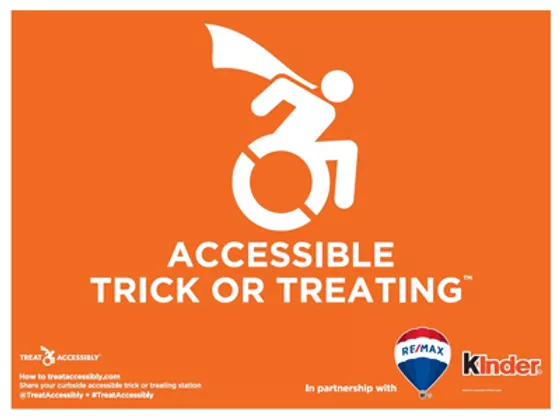By Jack Brittle, Local Journalism Initiative Reporter
Last week, the Halton Catholic District School Board (HCDSB) held one of its monthly meetings to discuss various items relevant to the board.
Sita Jayaraman, HCDSB’s senior manager for Human Rights and Equity, presented a progress report on the board’s Anti-Black Racism Strategic Plan that was adopted last year.
According to the report, its purpose is to “dismantle anti-Black racism and achieve systems equity for Black students and staff.” It is part of a three-year strategy.
The plan was published in December 2023 by Koskie Minsky, LLP and implementation began last year. The report focuses on how well the implementation has gone so far, by indicating how many recommendations made in the report the board has completed or initiated.
The report is broken down into five categories: policies and programs; recruitment, hiring, and retention; accountability and transparency; inclusive curriculum and school climate; and capacity building.
Jayaraman indicated that multiple departments contributed to the report, including Curriculum, Human Resources, Safe Schools, Student Success, and Special Education.
“In the first year since the release of the report and the recommendations, just over a third of the actions under the 17 recommendations have either been fully or partially implemented,” Jayaraman said.
Jayaraman explained why not all the recommendations have been initiated yet.
“The recommendations that have not been initiated relate to those that have significant financial implications, ones that are dependent on other recommendations being completed first, or ones that have been identified for implementation in the latter stages of the strategic plan,” Jayaraman said.
She also said that the establishment of the Equity and Inclusive Education Steering Committee has been one of the most significant parts of the implementation.
“The committee has been struck and our first meeting is next week,” Jayaraman said. “There’s much work ahead that needs to be done in collaboration with the steering committee to build trust and centre the well-being of Black students and staff.”
Jayaraman clarified that while the report contains 17 recommendations, there are over 75 action items contained in the report.
“This report only speaks to the action items that have been covered, because each recommendation had multiple action items,” Jayaraman said. “So we may have done one or two, but not all of them.”
Oakville Trustee Robert Kennedy for Wards 1-3 asked for specific recommendations the committee is looking to implement to achieve systemic equity.
Jayaraman said that the whole report directs the board to address inequality at a systemic level, and highlighted a few of the pieces related to that goal.
“Data collection is a systemic piece,” Jayaraman said. “The recommendation was that the board gather specific data and look at incidents, for example, of bias to address those. That’s a systemic piece. There [are] systemic pieces around complaint investigation. There [are] systemic pieces around inclusive recruitment and hiring to ensure that principles of equity and inclusion be incorporated in the totality of the recruitment process, inclusive mentorship and leadership.”
“Development is another systemic recommendation, anti-Black racism in curriculum training, trauma-informed services and restoration, Afrocentric pedagogy,” she continued. “So almost all of the 17 recommendations are about how we can dismantle systemic issues and advance system equity so that it’s not being done in pockets here and there, but as a system for advancing equity.”
Halton Hills Trustee Janet O’Hearn-Czarnota asked what the scope of the steering committee will be.
“Will that be something organic when you meet…or is it prescribed already,” O’Hearn-Czarnota said.
Jayaraman said that the purpose of the steering committee is to “advise, inform, and guide the work of advancing system equity within the context of the recommendations that have already been listed in that plan,” but indicated that “there might be additional items that the steering committee would really like to see and prioritize.”
The committee will consist of four parents/guardians, four students, four staff, and three community organizations, as well as senior leadership including Director of Education John Klein, particular superintendents with responsibilities for Safe Schools or Special Education, HR employees, and members of the Research Department and the Office of Human Rights and Equity.
Jayaraman said that the board sent out a call for those interested in applying.
Klein gave his thoughts on the initiative after the presentation.
“I think we’re on the brink of some fearless conversations and learning from us as school leaders,” Klein said. “Look at me as the leader in this committee, or heading toward this committee. I want to be as respectful and humble as possible to learn. And that might not be easy, but I think it’s the best approach that we know of right now. And, I think we’re going to head into that very humbly and see where it leads us. It’s exciting. And I think that probably there’s a bit of trepidation as we do it.”
“I want to say one more thing before I finish, though,” Klein said. “I think some of us have a sense that this came from emotion. But I would be remiss if I didn’t remind us that…we didn’t just come up with this on our own. I think it’s important that, sometimes we talk about documents and policies in Ontario that are at the root of things.”
“We don’t go ‘Oh, we’ll follow that one. We feel like it,’” Klein said. “So even if we didn’t have a resolution, these are things we should be following. I just want to make sure that we’re reminded of the fact that this is something that we didn’t come up with ourselves, it’s been there and it’s something that all schools and parts of the community are asked to respond to.”
To read the whole progress report, click here.





